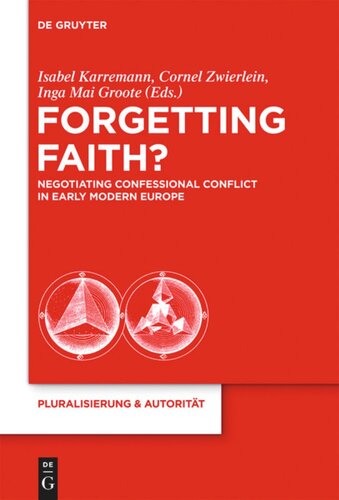

Most ebook files are in PDF format, so you can easily read them using various software such as Foxit Reader or directly on the Google Chrome browser.
Some ebook files are released by publishers in other formats such as .awz, .mobi, .epub, .fb2, etc. You may need to install specific software to read these formats on mobile/PC, such as Calibre.
Please read the tutorial at this link: https://ebookbell.com/faq
We offer FREE conversion to the popular formats you request; however, this may take some time. Therefore, right after payment, please email us, and we will try to provide the service as quickly as possible.
For some exceptional file formats or broken links (if any), please refrain from opening any disputes. Instead, email us first, and we will try to assist within a maximum of 6 hours.
EbookBell Team

4.7
106 reviewsFor the last decade, early modern studies have significantly been reshaped by raising new and different questions on the uses of religion. This ‛religious turn’ has generated new discussion of the social processes at work in early modern Europe and their cultural effects ‑ from the struggle over religious rites and doctrines to the persecution of secret adherents to forbidden practices. The issue of religious pluralisation has been mostly debated in terms of dissent and escalation. But confessional controversy did not always erupt into hostilities over how to symbolize and perform the sacred nor lead to a paralysis of social agency. The order of the day may often have been to suspend confessional allegiances rather than enforce religious conflict, suggesting a pragmatic rather than polemic handling of religious plurality. This raises the urgent question of how 'normal' transconfessional and even transreligious interaction was produced in a context of highly sharpened and always present reflexivity on religious differences. Our volume takes up this question and explores it from an interdisciplinary and interconfessional perspective. The title “Forgetting Faith?” raises the question whether it was necessary or indeed possible to sidestep religious issues in specific contexts and for specific purposes. This does not mean, however, to describe early modern culture as a process of secularization. Rather, the collection invites discussion of the specific ways available to deal with confessional conflict in an oblivional mode, precisely because faith still mattered more than many other social paradigms emerging at that time, such as nationhood, ethnic origin or class defined through property.